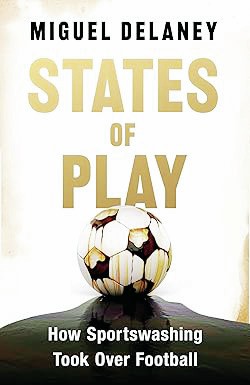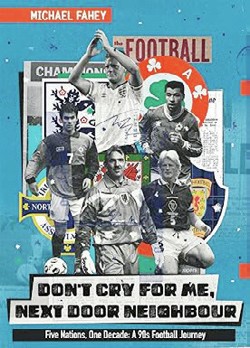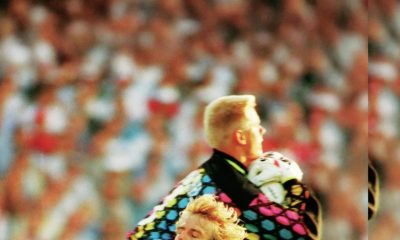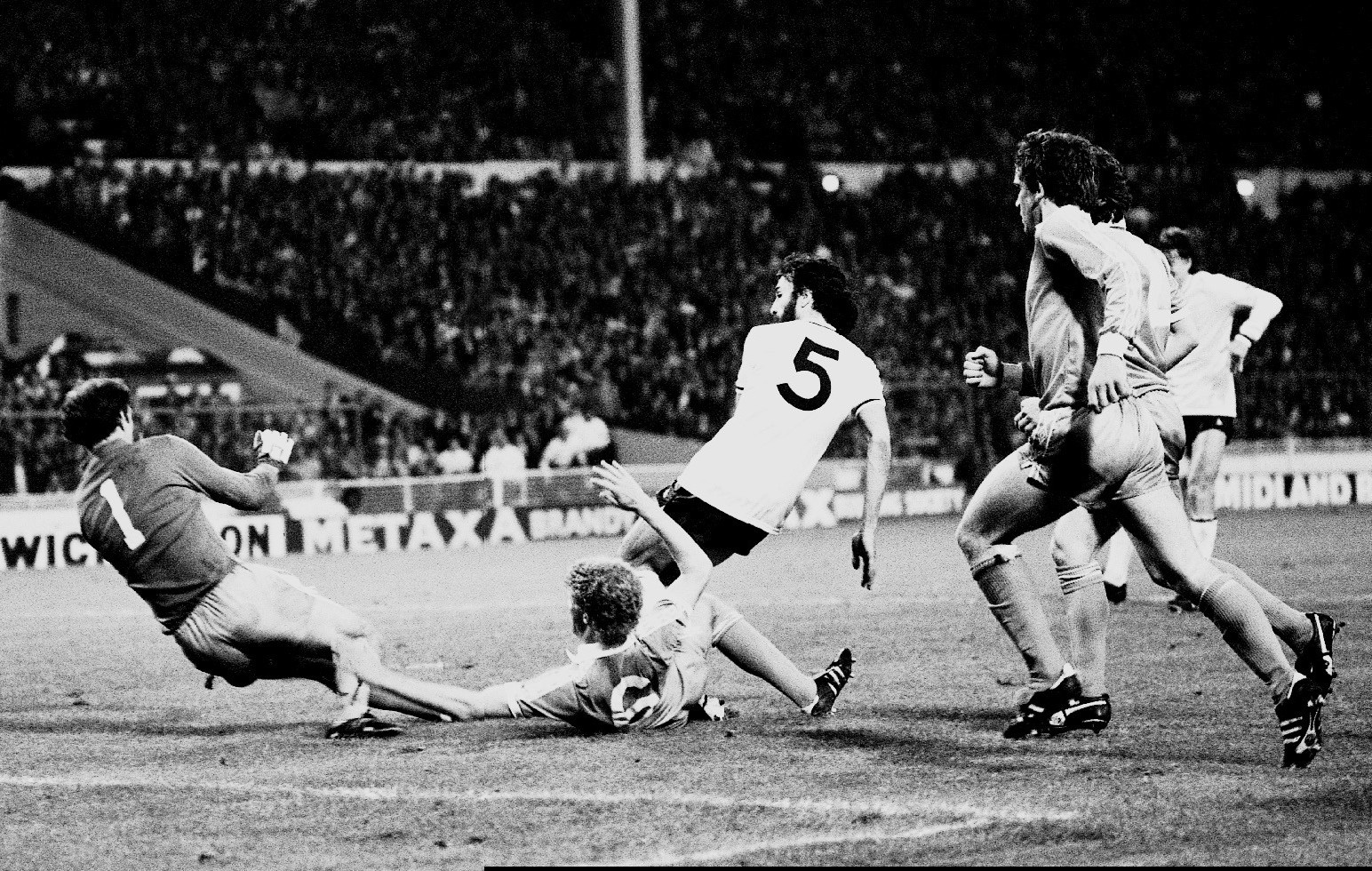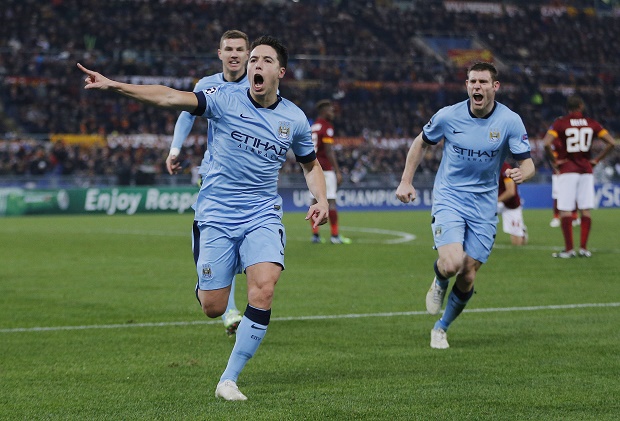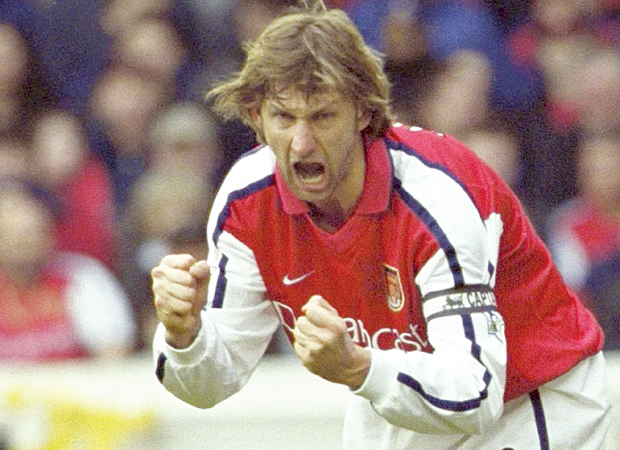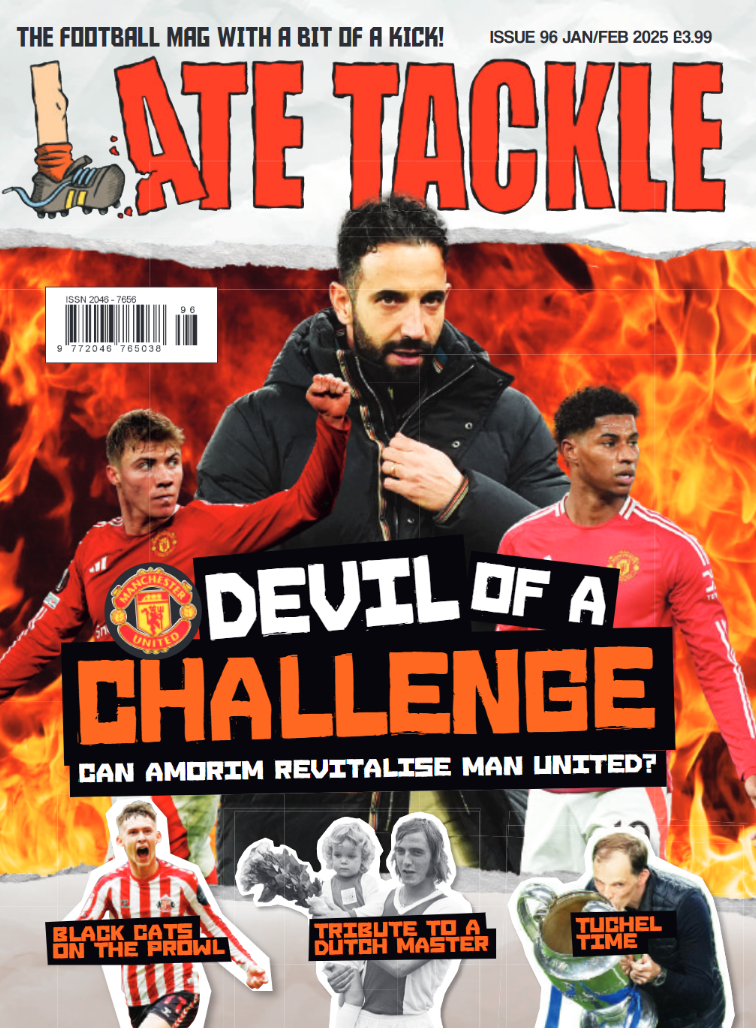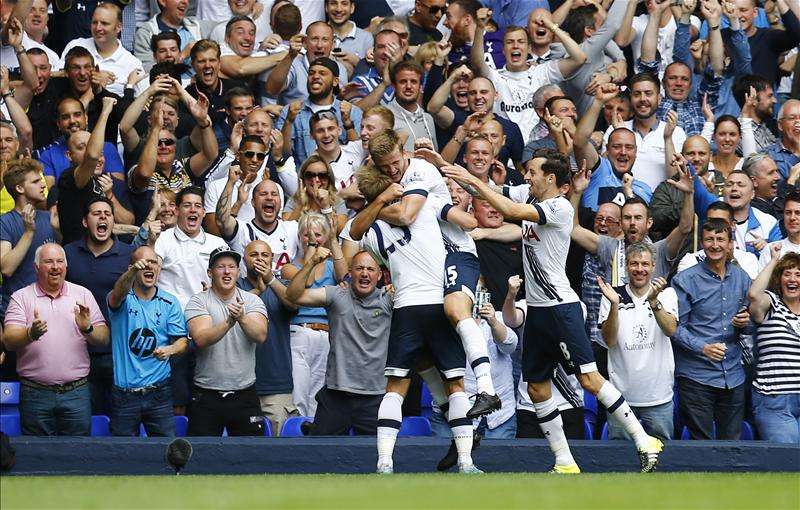
 After almost going under the radar in the opening few months of the season, their 1-1 draw away at rivals Arsenal earlier in the season saw many people start to take notice of Tottenham.
After almost going under the radar in the opening few months of the season, their 1-1 draw away at rivals Arsenal earlier in the season saw many people start to take notice of Tottenham.
Their performance that day was a dominant one but after leading for 75 minutes Spurs couldn’t hold on for victory.
Typical Tottenham? This trail of thought would have been justifiable in seasons gone by, but not now.
Cast your mind back to the summer of 2013. The sale of Gareth Bale to Real Madrid for a world record fee of £85.3m generated funds on such a scale that Spurs chairman Daniel Levy felt he needed to bring in Franco Baldini to assist him and manager Andre Villas-Boas in recruiting those that would replace the Welshman.
Sure enough, a host of new faces arrived: Paulinho, Christian Eriksen, Roberto Soldado, Nacer Chadli, Etienne Capoue, Vlad Chiriches and Erik Lamela.
The transfers of Paulinho, followed by Soldado and then Lamela led Tottenham to breaking their transfer record three times in the same transfer window.
The transfer activity had led them to be considered ready to challenge with the best in the Premier League and rediscover the ‘Glory, Glory Nights’ that the extraordinary Champions League campaign of the 2010/11 season had brought.
As former keeper Erik Thorstvedt said: “Spurs have sold Elvis and bought the Beatles!”
Unfortunately, as fans and pundits alike learnt very quickly, these signings were more S Club 7 than the Beatles.
Only three remain with Chadli and Eriksen regulars in the first team set-up and Lamela still leaving Spurs fans with a sense of wanting more.
These suspect signings managed to see off Villas-Boas within four months of the transfer window closing, following hefty defeats to Manchester City and Liverpool.
The appointment of a young, English manager in Tim Sherwood, promoted from working with the very successful Spurs under-21 side, gave rise to a feeling of quiet optimism amongst the Spurs faithful. There were many that thought the straight- talking, no-nonsense style of Sherwood’s was exactly what some of the multi-million pound brigade needed.
However, the 18-month contract that Sherwood had agreed when taking on the job only served to undermine him, despite some improvement on the pitch.
Frank de Boer and Mauricio Pochettino, Ajax and Southampton managers respectively at the time, were constantly being linked to the managerial hotseat. The rumours weren’t coming from thin air. Within a week of the season ending, Pochettino replaced Sherwood after Spurs stuttered to a sixth-place finish.
So why bother to even highlight Sherwood’s reign as manager? On the surface, it appears like he failed just as badly as Villas-Boas did in his attempts to coax the best out of the new signings.
As a matter of fact, the appointment of Sherwood was significant. It was a sign that Levy recognised the work taking place behind the scenes at the club, developing the young players.
It signaled a moment of realisation that a more sustainable way of progressing the club was to promote youth rather than buy big foreign names who were just as unproven in the English game.
After all, you don’t have £100m to spend every transfer window.
As expected, during his short managerial tenure, Sherwood did promote youth players into the first team set-up.
Nabil Bentaleb and Harry Kane became first team regulars by the end of the season. However, it was Sherwood’s managerial inexperience that was his undoing.
Levy would not have felt comfortable with Sherwood’s very public rants about his players (his post-match interview following a 4-0 defeat to Chelsea in March 2014 comes to mind) and the rumours surrounding his future.
Pochettino, on the other hand, had proven he works well with young players whilst manager of Southampton and seemed a safer, more experienced bet to integrate the burgeoning amount of youthful talent into the first team at Spurs for the 2014/15 season.
Signings such as Eric Dier and Ben Davies confirmed that Pochettino wanted youthful players who could buy into his pressing philosophy. Nonetheless, there was pressure on Pochettino coming from the top people at the club (Levy and Baldini) to try and make the array of signings made with the ‘Bale money’ work.
Yet trying to get more experienced professionals to adapt to his gruelling, pressing philosophy proved tough for Pochettino.
Following home defeats to West Brom, Newcastle and Stoke, it was becoming clear he was having just as big a struggle as AVB and Sherwood did to get the best out of the big name signings.
But Pochettino did have other players to turn to. He used the Europa League and Capital One Cup, much- maligned competitions by many football fans, to test his youngsters and those on the fringes of the first team line up.
Soon players such as Kane and Ryan Mason were proving difficult to leave out of Premier League matches for much longer.
Combing the hunger and raw talent of players like Kane, Mason, Dier and Bentaleb with the class of Eriksen, Jan Vertonghen, Hugo Lloris and the much-improved Chadli worked well.
Stand-out performances against Chelsea and Arsenal followed in the next couple of months, dispatching them 5-3 and 2-1 respectively.
Furthermore, Spurs reached the Capital One Cup final, where they were defeated 2-0 by Chelsea. The potential of the side was beginning to show. It also looked at one point that Spurs may put up a realistic fight for the Champions League but they fell away towards the end of the season as fatigue kicked in.
Levy has shown faith in Pochettino by supporting him in the transfer market and when he wanted to make changes behind the scenes. Paul Mitchell was brought in to the club last November to assist Pochettino in the recruitment side of the game.
The pair had worked successfully together at Southampton and Levy could hardly argue that Baldini, who departed the club, had been a success.
Deadwood has been cleared out this summer, while more youthful players, English and continental, have been recruited with Heung-min Son, Kieran Trippier, Kevin Wimmer, Clinton N’Jie and, of course, Dele Alli all aged 23 and under.
Toby Alderweireld, aged 26, has also been brought in to strengthen the defence.
The trust in youth which Pochettino exhibits is illustrated by the fact that Tottenham’s squad have the youngest average age in the Premier league at 24.9 years old.
Some media outlets reported that Pochettino was Roy Hodgson’s ‘special guest’ at Wembley for England’s recent friendly against France because he has shown so much faith in English youth.
Alli, Dier and Kane all started with the highly impressive Alli scoring in the 2-0 win.
Results and performances so far this season, such as a 4-1 win against title contenders Manchester City, show this Spurs side could go far.
But there will be disappointments this season as well. That is what happens with young players.
But if we look at the broader picturer for a moment, the change in philosophy at Tottenham that has taken place on and off the pitch in the space of two years has been remarkable.
It has been referred to as a period of transition by many people and pundits alike.
Cynics may claim that Spurs will always be in transition if they continuously sell their best players (Bale, Berbatov, the list goes on) but there is something different this time.
The youth that Spurs have been breeding in their academy coupled with smart recruitment of young players from other clubs in England and abroad is exactly what Pochettino wants.
He wants players with hunger and a willingness to learn so they can be moulded into his own team. Champions League football may not come this season but for the first time in a while at Spurs there may just be a strategy. A philosophy. An identity.

